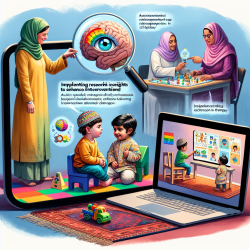The integration of artificial intelligence (AI) and robotics into various sectors is no longer a futuristic concept but a present-day reality. As educators and practitioners, it is crucial to understand the implications of these technologies, especially concerning their moral consideration. The research article "The Moral Consideration of Artificial Entities: A Literature Review" provides valuable insights into this emerging field.
The Growing Presence of AI in Education
AI technologies are increasingly being incorporated into educational settings, from administrative tasks to personalized learning experiences. With this integration comes the responsibility to consider the ethical implications and moral status of these artificial entities. The literature review highlights that while there is consensus on the potential future moral consideration for some AI entities, there is still a significant gap in empirical data and ethical frameworks guiding their integration into society.
Key Findings from the Literature Review
The review identifies several key areas where further research and understanding are needed:
- Moral Consideration: There is a growing agreement that artificial entities may warrant moral consideration if they exhibit characteristics such as sentience or consciousness. However, this remains a theoretical possibility rather than a current reality.
- Ethical Frameworks: Beyond traditional ethical frameworks like consequentialism and deontology, new approaches such as "information ethics" and "social-relational" ethics are being explored to better address the nuances of AI moral consideration.
- Lack of Empirical Data: There is limited empirical research on human attitudes towards AI, which suggests an important gap for psychological and sociological studies.
- Sociological Impact: Understanding how AI will be integrated into society and its impact on human interactions is crucial for developing policies and educational practices.
Implications for Educators
For educators, integrating these findings into practice involves several steps:
- Cultivating Awareness: Educators should stay informed about developments in AI ethics through continuous professional development opportunities such as webinars and conferences.
- Encouraging Critical Thinking: Incorporate discussions about the ethical implications of AI into curricula to foster critical thinking among students.
- Pioneering Research: Engage in or support research initiatives that explore the impact of AI on education and society at large.
- Navigating Ethical Dilemmas: Develop policies that address potential ethical dilemmas arising from AI use in educational settings.
The Path Forward
The moral consideration of artificial entities presents both challenges and opportunities for educators. By understanding and addressing these issues, practitioners can not only improve their skills but also contribute to shaping an ethically sound integration of AI in education. This proactive approach will ensure that AI technologies enhance learning while respecting ethical boundaries.
If you're interested in delving deeper into this topic, I highly recommend reading the original research paper: The Moral Consideration of Artificial Entities: A Literature Review.










